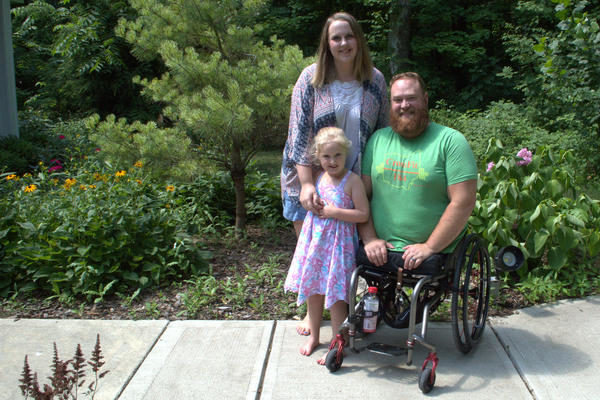The 2016 death of a Dallas man who was in police custody is just now garnering attention, as newly-released police body camera footage appears to fill in some blanks about his death.
Anthony “Tony” Timpa, 32, called 911 from a parking lot in August 2016 – telling the operator he was schizophrenic, on drugs, off his medications and in need of help. Officers arrived at the scene, detained Timpa and he died. The cause of death wasn’t immediately clear to the public, but after police recently released body camera footage from the incident, reporters are attempting to figure out exactly what happened.
Cary Aspinwall is an investigative reporter for The Dallas Morning News, where she has been following this story for years. Aspinwall says she was tipped off by police incident data, which showed a man who died after calling 911.
“From there, I started requesting records from that death – the basic police report, the body camera footage, the 911 call,” Aspinwall says. “They refused to give it to me. The City of Dallas and Dallas County officials claimed there was an ongoing investigation, but they wouldn’t tell me what.”
It took almost three years and a legal fight for Dallas Police to turn over the footage, Aspinwall says, until a federal judge ruled Monday in favor of a motion to release records from Timpa’s death.
Aspinwall says the footage includes three videos from three different officers at the scene, showing a long exchange between law enforcement and Timpa before his quiet death. When the video begins, Timpa is in handcuffs. He is seen “rolling around on the ground, because he’s upset,” Aspinwall says.
She says officers restrained Timpa with their bodies and with zip ties. They remain on top of Timpa for almost 14 minutes. Aspinwall says the video is “very disturbing.” She says Timpa “wails and screams… He’s not combative. He’s not saying he’s going to kill or hurt these officers. He’s just asking them to help. He’s just asking them to get up off of him.”
“The medical examiner said [the cause of death] was basically cardiac arrest from toxic effects of cocaine and physical restraint,” Aspinwall says. “They couldn’t rule out one or the other. Putting someone chest down, face down like that while they are in restraints is actually really stressful on their cardiac.”
Three of the officers involved were indicted on charges of misdemeanor-level deadly conduct in 2017, Aspinwall says, but the Dallas District Attorney John Creuzot dismissed the charges in March.
“He said it was because he couldn’t get the medical examiners to testify that the officers actions were solely what killed [Timpa],” Aspinwall says. “The family is now suing the City of Dallas and Dallas County in federal court.”
Written by Hayden Baggett.
















